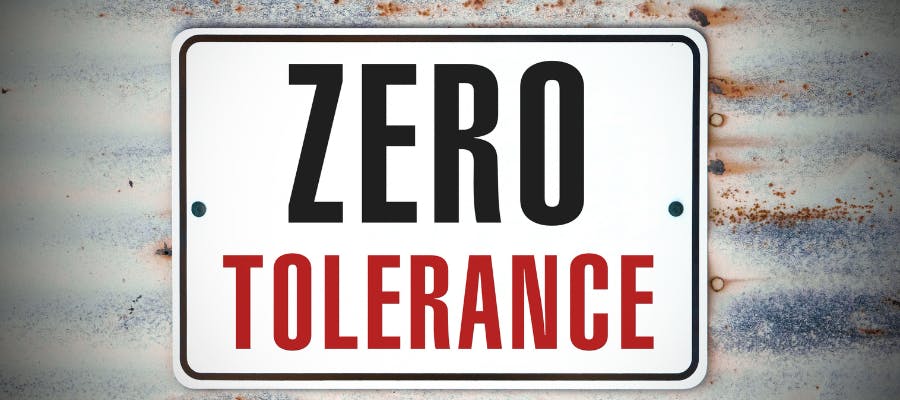First published on Friday, July 26, 2024
Last updated on Saturday, July 27, 2024
Have you heard the latest news?
Welcome to HR Heartbeat, where we give you a rundown of the week's top employment law stories. Stay on the pulse of current trends impacting your business, plus get up-to-the-minute commentary on all things HR and legal.
When timing is everything
A recent decision by the Alberta Labour Relations Board (ALRB) highlights the importance of documentation and timing when terminating an employee for just cause.
When an employer tried to overturn an order to pay an employee they terminated for just cause over $3,000 in termination holiday and vacation pay, their appeal was dismissed.
The board concluded that they didn't submit enough evidence to prove just cause termination, which led to the dismissal of the appeal.
They'd given the employee verbal and written warnings about their behaviour in the workplace, but at least a month had passed between when the employee received a final written warning for getting into an altercation with their manager and their termination. No further documented incidents occurred in the month before their termination, so the board determined the employer didn't have a credible case for a just cause termination.
This decision highlights the importance of timely action. The delay between the final warning and termination weakened the employer's case, stressing the importance of prompt action and clear communication. It's crucial to remember that if you're going to terminate an employee for just cause, there's a high legal standard. If the employee files a claim, you must prove serious misconduct or repeated cases of less serious misconduct to back up your decision.
Having robust employment documentation like employment contracts and company policies can help you avoid dilemmas with just cause and without cause terminations. Our library of expertly drafted contracts, checklists and policies—BrightBase— provides you with clear documentation to protect you from employee claims and make the termination process smoother and more defensible.
B.C. introduces International Credentials Recognition Act
As of July 1, B.C.'s International Credentials Recognition Act (ICRA) is fully in effect. This means employers in B.C. can no longer use a lack of Canadian experience to screen out applicants vying for vacant positions in their business.
It's not uncommon for Canadian employers to list 'Canadian experience' as a requirement in job postings, but with this new Act, internationally trained professionals who are qualified for a job will no longer be at a disadvantage. This Act aims to make credential recognition for internationally trained professionals more transparent, efficient, and fair.
The province expects to see at least one million job openings within the next decade, many of which will be filled by internationally trained professionals, so this legislation is timely. Fields affected include veterinary medicine, architecture, surveying, applied biology, teaching, accounting, and notaries public.
By removing unnecessary barriers, internationally trained professionals can more effectively contribute to B.C.'s workforce, addressing both current and future manpower needs. This strengthens the local economy and ensures that businesses have access to a diverse talent pool.
With Ontario considering similar measures, the move towards recognizing international credentials is sweeping across the country.
Recruitment can often be taxing, but it doesn't have to be. Let our Turbo Talent Navigator handle everything from creating job roles to onboarding new employees in line with new and existing legislation.
Is zero tolerance really zero tolerance?
In a recent ruling, the Alberta Labour Relations Board (LRB) reinforced the need for employers to have clear, written zero-tolerance policies.
The board ruled against an employer for failing to prove that an employee had violated the company’s drinking and driving policy before terminating them.
The LRB's decision highlights the significance of documenting and consistently enforcing your policies. The employer claimed they fired an employee for violating their zero-tolerance alcohol policy after they were seen drinking after driving a company truck to a bar.
However, the lack of a written policy and the company's actions following the incident undermined their case since their zero-tolerance policy was not documented. Plus, the company continued to allow the employee to work and drive company vehicles for two weeks after the incident, which contradicted their claim of an immediate policy violation.
The LRB also noted that there was no direct evidence, such as breathalyzer or field sobriety tests, to support the claim that the employee was impaired. Their only evidence that the employee had been drinking was based on hearsay, lacking substantial proof.
This case proves the importance of clearly documenting and communicating all critical policies, including zero-tolerance ones, to employees. It's also crucial to include provisions for employees to disclose dependencies or seek assistance, ensuring a fair and balanced approach.
That's it for today! Come back next time for more HR news so you stay ahead of major employment law changes.






